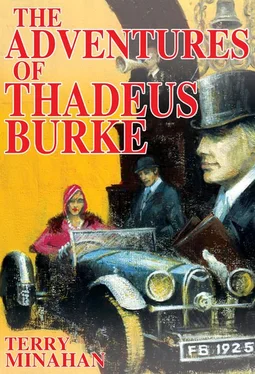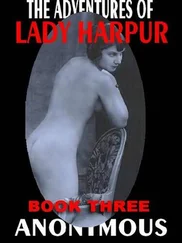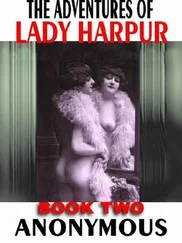Unfortunately they found Mr Whelan still in his office, sitting at his desk, dead from a gunshot to the head.
Within an hour the tiny office was full of policemen and various members of the medical fraternity. The body was removed and Thadeus and James were questioned by an Inspector Jackson, a tall impressive individual about the same height as Thadeus, with dark brown hair cut very neatly in an almost military style. Thadeus noticed that his suit and shoes were of bespoke manufacture. He looked very healthy, physically fit and his face had an outdoors or country hue.
Thadeus knew nothing, never having had the pleasure of Mr Whelan’s company during his lifetime. James supplied full details of Mr Henry James Whelan of an address in Norwood, south of London, with a family of wife and two daughters, and a Morris Oxford Drophead Coupe 1550cc. James could think of no reason why Mr Whelan would commit suicide, he had just sold his business for a substantial sum and planned to retire to Ireland. He had never known him to be involved in any sort of Irish politics, indeed he had shown no interest in politics at all. He did read The Times every day, very thoroughly, over his morning coffee. James had last seen him the previous evening when he had left him in the office and went home at 5.45 pm. Thadeus thought it odd that a man would commit suicide at his desk, equipped with pens, pencils and paper and yet leave no note of explanation. It did not seem to worry Inspector Jackson, however, who appeared to be happy with the medical evidence. Thadeus and James made some brief notes of what needed to be done in the office, but generally decided to make a new start on Monday morning.
On Saturday evening Thadeus was visited for dinner by an old chum from Cambridge, Augustus Downing, no relation to the college or its eminent founder who had also built Downing Street, the home of the prime minister, Mr Stanley Baldwin. This Downing was a wealthy young man from a family in Norfolk who had studied law at St John’s College and was now a practising barrister-at-law at Middle Temple. He was known to his friends as ‘Gussie’; Thadeus and he had roomed on the same staircase. The dinner was a longstanding engagement, honoured by Thadeus without much enthusiasm as he would rather have been planning his new company.
Gussie had recently become a communist and was at Thadeus’ mews house – actually two mews houses knocked into one – near Sloane Square in order to convert Thadeus to the cause. Hilton, Thadeus’ manservant, butler and general dogsbody to ‘his master’s voice’, had prepared a shepherd’s pie with salad. Thadeus always told diners that this dish was made with real shepherds. It was good student grub and the two young men enjoyed it immensely.
The Burke family had long been supporters of the Liberal Party and Gussie attacked them with vigour.
‘Asquith and Lloyd George act as if they were still a power in the land; they do not have enough Members of Parliament to set up a decent rugby team. They think they will be back in government within twelve months, it will just not happen.’ Thadeus added that they might just make a rugby team, but they would not all be wearing the same colour shirts.
Gussie was amused by this reference to the open hostility between the Asquithians and the Lloyd Georgeites and made a note of the quip in his little notebook.
Gussie’s economic arguments rested on the prime factors of production, capital, land and work. Thadeus pointed out to him, on several occasions, that as capital was a result of production it could not be a prime factor in the creation of wealth. Thadeus preached from the gospel of Henry George, the American economist that had influenced the Liberal Party from the turn of the century.
Gussie had no answer to Thadeus’ clear principles, except to say that they were ‘old hat’. ‘We need new ideas, even Lloyd George is thinking about the nationalization of land. With Lenin dead and this new man Stalin starting to organize a true workers’ state in Russia, the world is going to change forever.’
They both agreed that the current crisis in the coal mining industry was not going to be resolved easily or amicably. Mr Baldwin’s subsidy of the miners’ reduced wages could not continue long, and the Trades Union Congress had made it clear that they anticipated full support from other workers. There was talk of a general strike; Gussie anticipated this leading to a full-scale revolution. This was not the sort of scenario that Thadeus wanted for his activities in the city.
Over a glass of port Thadeus threw in the towel, advising Gussie that the problem with politics was that nobody was interested in the truth, the only goal for politicians and public alike was ‘success’. Promise to give the people what they want and get elected. Even the electorate were not interested in economic justice, far from it, they wanted to be better off than their neighbour without working harder.
Gussie thought that this was ‘head-in-the-sand’ stuff; get out there and do something he advised.
‘I do,’ replied Thadeus. ‘Myself and my family invest regularly in land; we collect rent and put it in our pockets. The nation does not appear to want it. I shall probably become very rich.’
Strangely this did not appear to worry Gussie, who was beginning to wilt under the weight of consumed claret, and at about 11.15 pm set out for his own house, up the road in Chelsea.
Thadeus, thoroughly depressed by all the politics, prepared for bed.
His mood was changed dramatically by a telephone call from his sister. She was in a hospital just west of London with a broken leg, having driven her car into a ditch. Would Thadeus come and get her in the morning? Her left leg was in plaster from the knee to the ankle, a simple fracture of the fibula. She was equipped with a pair of crutches and thought that she might stay with him in London for a few days: ‘At least until I get the hang of the crutches!’ She gave him the directions and he promised to be there at 10.30 am. ‘Good heavens! What a day!’ thought Thadeus, as he went to sleep. Sunday had to be better.
Thadeus was up studying his AA road map when the telephone rang at five minutes past nine in the morning. It was James Pooley in a call box. Sunday was not going to be any better than Saturday. Thadeus phoned James back at his call box. James had been working on some data in the evening and wondered if it would be possible for them to meet during the day, then he could continue developing the ideas this evening ready for Monday. ‘You can’t keep a good man down – or something like that, ’ thought Thadeus. ’Yes. Come over at about 1.30, we can have lunch. My sister Freddie will be here. You should meet her. She owns part of the company and is a director. She has had a motor accident and is staying with me for a few days.’
‘Nothing serious I hope,’ said a worried James.
‘No, it was only a bull-nose Morris,’ chuckled Thadeus.
‘I meant your sister…’ started James.
‘I know,’ interrupted Thadeus. ‘She has a broken leg, but as she is a medical student I imagine she is looking forward to the experience.’ He paused. ‘Do you want to bring Eddie?’
‘No, she is away with her mother visiting a sick uncle in Essex.’
They said their goodbyes and Thadeus set off for the Great West Road. By 12.45 pm they were back. Freddie was set up in a sort of throne that Hilton had erected during the morning. The nucleus of the construction was a leather wingback chair, to which had been added several rugs and cushions. It faced an ottoman similarly attired. Hilton always treated ‘Miss Freddie’ as a queen and was therefore in his element; books, magazines, cakes and sweets were all within easy reach. Game pie with mashed potatoes had been organized for lunch together with a decent bottle of Chateau Latour.
Читать дальше












